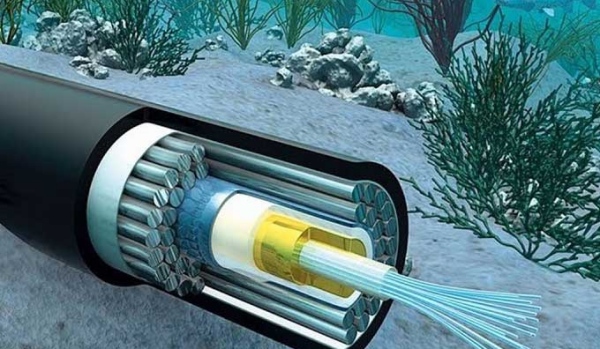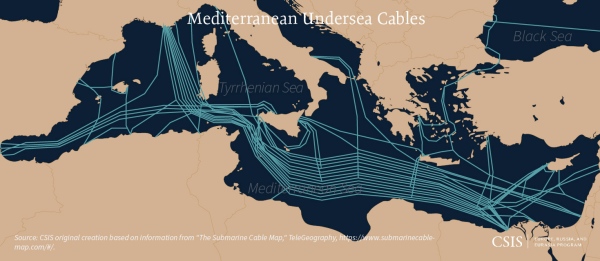The web of power that has less masters every year
Is the one that you are using right now.
Google, Amazon, Meta and Microsoft are weaving what I would call a worrying “Fiber-Optic Web of Power”. Here is why you should be worried too.
One web of fibers to connect them all…

Fiber-optic cable carry 95% of the world’s international internet traffic, linking all of the world’s data centers. The transoceanic part of this very physical, very expensive web consists almost entirely of underwater cables. The problem is that until recently, almost all those cables were owned and controlled by telecommunications companies and governments. Today, that’s no longer the case.
In less than a decade, Alphabet (that is, Google), Amazon, Meta (that is, Facebook) and Microsoft have passed from using less than 10% of undersea-cable capacity to about 66% and. above all, to own more and more of those cables every year. In this way, that is by saving the money they should have paid over time to other cable owners, those companies “don’t need to operate [those same] cables at a profit for the investment to make financial sense."
Imagine if Amazon owned all the roads…

Even before they started buying cables, those companies had much more money than governments, and traditional telecom companies. Today, they plan to keep buying and building more and more underwater optic cables, for the same two old reasons why they do everything else:
- to make their own products and services impossible to avoid, sorry, I meant: “more competitive in today’s aggressive markets”
- to make it impossible for any newcomer to compete fairly, that is to offer comparable services at the same or lower prices (how can you offer cheaper storage, if your servers must use the cables owned by companies that also offer online storage?)
This begs the question that all governments and their citizens should ask themselves:
“Do we want the world’s most powerful providers of internet services and marketplaces to also own the infrastructure on which they are all delivered… Imagine if Amazon owned the roads on which it delivers packages."
The digitally privatized oceans
Whatever answer you give to the question above, one thing is certain: the oceans of the world are becoming more and more digital every year, first at the (privatized!) data level and now at the physical level, thanks exactly to the (privatized, again!) cables that run on their floors. This is even less reassuring, when you also consider how fragile, that is needy of really effective and transparent supervision, those cables really are: we are talking about stuff highly vulnerable to anyone that could “deploy underwater submersibles to destroy them”.
Who writes this, why, and how to help
I am Marco Fioretti, tech writer and aspiring polymath doing human-digital research and popularization.
I do it because YOUR civil rights and the quality of YOUR life depend every year more on how software is used AROUND you.
To this end, I have already shared more than a million words on this blog, without any paywall or user tracking, and am sharing the next million through a newsletter, also without any paywall.
The more direct support I get, the more I can continue to inform for free parents, teachers, decision makers, and everybody else who should know more stuff like this. You can support me with paid subscriptions to my newsletter, donations via PayPal (mfioretti@nexaima.net) or LiberaPay, or in any of the other ways listed here.THANKS for your support!